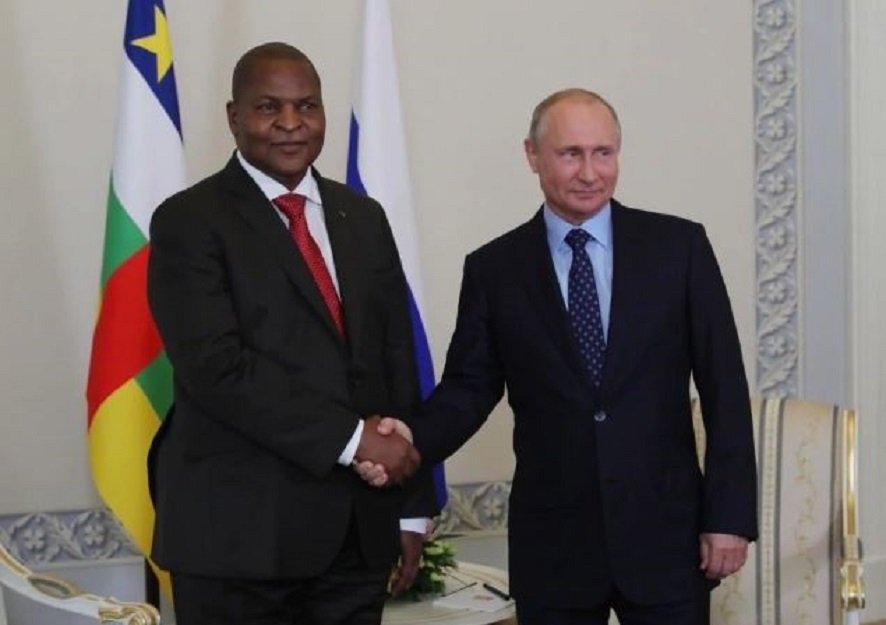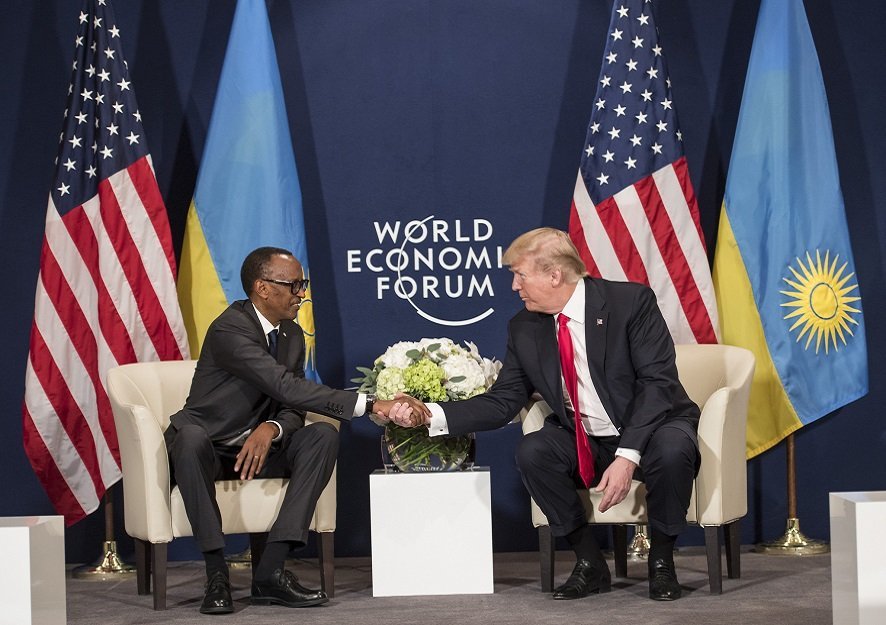The United States is losing its stronghold in the African continent as China has filled the vacuum created by the position of the Donald Trump administration’s “America First” policy which is doing more harm than good.
By the end of Barack Obama’s eight-year term as president, the United States was still a dominant force in Africa and the first black president deepened the relations with eight monumental visits to the continent to solidify trade and encourage good governance.
China had already won the heart of Africa since 2006 when it held the first China-Africa summit in Beijing to establish a mutual friendship, cooperation and a win-win development partnership.
China’s investments in Africa surged by more than 100 times from 2000 to 2017 and the total trade volume increased by 17 times. In 2017, China’s trade with Africa surged by 14 percent year on year to 170 billion U.S. dollars with Chinese direct investment hitting about 3 billion dollars annually on average.
Since 2009, China consecutively became Africa’s largest trading partner with investments totalling 100 billion dollars and covering almost every country on the continent.

The American vacuum in Africa has grown to be a disturbing development for the global superpower which is now openly declaring war on China’s influence in Africa and latecomers, Russia.
The recently released “Prosper Africa” strategy of the United States which was explained by national security adviser, John Bolton, went beyond the three core interests of advancing U.S. trade and commercial ties with African nations; countering the threat from Radical Islamic Terrorism; and ensuring that U.S. taxpayer dollars for aid are used efficiently and effectively.

John Bolton
In enhancing U.S. economic ties with Africa, Bolton categorically mentioned China and Russia as “deliberately and aggressively targeting their investments in the region to gain a competitive advantage over the United States” which the U.S. strategy will target to “safeguard the economic independence of African states and protecting U.S. national security interests”.
This clearly exposes the United States’ disinterest in global partnership and attempt to end the competition in the region to gain its former glory. The plan is to counter China and Russia’s economic and political influence in Africa.
“China uses bribes, opaque agreements, and the strategic use of debt to hold states in Africa captive to Beijing’s wishes and demands. Its investment ventures are riddled with corruption, and do not meet the same environmental or ethical standards as U.S. developmental programs.
“Such predatory actions are sub-components of broader Chinese strategic initiatives, including “One Belt, One Road”—a plan to develop a series of trade routes leading to and from China with the ultimate goal of advancing Chinese global dominance,” explains John Bolton.
He went further to cite news reports that claimed China was taking over Zambia’s national power and utility company, Zesco, due to a debt of $6 to $10 billion dollars.
Zambia denied Bolton’s claims saying the utility was never provided as collateral and its debt to Beijing was only $3.1 billion.
“It is regrettable that such information can come from such a high-ranking official. In fact, Zesco is not within the scheme of Zambia’s debt to China,” said Zambia’s presidential spokesman Amos Chanda.
Bolton also cited China’s establishment of a military base in Djibouti closer to an American base and accused China of using military-grade lasers to target and distract U.S. pilots. He also allayed fears of Djibouti handing over control of its strategic port to China.
“Should this occur, the balance of power in the Horn of Africa … would shift in favor of China. And, our U.S. military personnel at Camp Lemonnier, could face even further challenges in their efforts to protect the American people,” Bolton added.
He also charged at Russia with accusations of seeking to increase its influence in the region through “corrupt economic dealings” and advancing its political and economic relationships with “little regard for the rule of law or accountable and transparent governance”.
Bolton accused Russia of selling arms and energy in exchange for votes at the United Nations that “run counter to the best interests of the African people.
The United States has lately not received backing from African countries at the UN during key votes on draft resolutions it table on several issues. Bolton believes Russia’s activities in Africa is the reason why the U.S. fails to get support.
Meanwhile, none of the 54 African countries has a permanent seat at the United Nations Security Council (UNSC) which has 15 members including five permanent members that wield the power to veto all resolutions.
The five permanent members comprise China, France, Russia, United Kingdom and the United States while African countries are elected by the General Assembly for two-year terms as non-permanent members.
In March 2018, Russia backed Africa’s quest for a permanent seat at the United Nations Security Council (UNSC) to have a say in the maintenance of international peace and security.
Russia’s foreign affairs minister, Sergey Lavrov, made the assurance after a meeting with the African Union chairperson Moussa Faki Mahamat at the AU Headquarters in the Ethiopian capital Addis Ababa.

John Bolton also said China and Russia were using “predatory practices” to stunt economic growth in Africa; threaten the financial independence of African nations; inhibit opportunities for U.S. investment; interfere with U.S. military operations; and pose a significant threat to U.S. national security interests.
On the contrary, Russia has expressed interest in Africa with new bilateral agreements signed to help create trade links and development partnership. The Soviet country has signed agreements with Ethiopia and Sudan to set up nuclear technology to help power their countries.
In the diamond, gold and uranium-rich Central African Republic (CAR), Russia has overtaken France to establish a strong influence.

It took advantage of an exemption clause to provide weapons to the security forces in the CAR despite the United Nations Security Council arms embargo imposed since the renewed conflict in 2013.
Russia deployed military trainers and weapons to the Central African Republic earlier this year after signing a bilateral agreement with the new president elected in 2017, Faustin-Archange Touadera. Touadera’s visit to Moscow last year resulted in the signing of the agreement which, among other things, includes “mutually beneficial” mining exploration.
Moscow also went beyond UN negotiation efforts to help end the unrest in the country by inviting the armed groups to Khartoum in August for talks with Sudan and they signed a preliminary agreement to end the conflict. Russia also announced another shipment of arms and the deployment of 60 additional military trainers in late October.
The solution adopted by the United States to regain its influence in Africa is to use the aid it provides as bait to get African countries to dance to its music.
“Under our new Africa strategy, we will target U.S. funding toward key countries and particular strategic objectives. All U.S. aid on the continent will advance U.S. interests, and help African nations move toward self-reliance,” said John Bolton.
He stated also that countries that “repeatedly” vote against the United States in international forums or “take action counter to U.S. interests” are not entitled to U.S. aid.
Bolton said the U.S. is revisiting a cold-war era Marshall Plan that “furthered American interests, bypassed the United Nations, and targeted key sectors of foreign economies rather than dissipating aid across hundreds of programs.”
These measures could rather harm U.S. trade interests in Africa which China and Russia are already beneficiaries. An example is a decision by Donald Trump to suspend Rwanda’s duty-free benefits to export clothes to the U.S. under

The suspension follows the East African country’s refusal to reduce tariffs on used clothes imports and to cancel plans to ban used clothes imports by 2019.
The Rwandan government’s response to the suspension was simply to help affected local garments companies to “transition to new markets” as they are already being introduced to European buyers.
The rest of Africa could also look elsewhere for aid and stop the United States from using them as pawns in its war against China and Russia. The days of being puppets in the hands of the West are almost over as the continent is implementing structural reforms towards economic independence.










